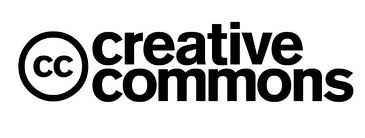Arran de la crisi sanitària de la COVID-19, la investigadora i becària predoctoral Alkim Erol reflexiona sobre l'impacte que el confinament estricte ha generat en la nostra societat. Estar exposats a les tecnologies de la informació i la comunicació va deixar de ser una opció per convertir-se en una necessitat peremptòria. D’aquesta manera, pot haver-se accelerat, justificat i apuntalat l'adveniment de l'anomenat Surveillance Capitalism (capitalisme de vigilància), la tendència que converteix en mercaderia les nostres dades personals.
I woke up early in the morning. I directly switched on my computer to check my schedule which was full of online meetings. Then, I checked out some online channels to get the news on COVID-19 updates and measures. While I was reading those updates and measures, I saw an online advertisement of a book that I had searched on Google a day ago. I directly clicked on the advertisement and I bought the book. Afterwards, I immediately started working on my research through online data that is on the Internet. I got hungry, so I googled some novel food recipes. After lunch, I felt like clearing my mind a bit and I meditated with the guidance of an app. I returned back to working and had my meetings via online channels. After I finished my work, I had couple of online video calls with my family and my friends. Then, I watched some films on the Internet. This is how I spend almost all my days in quarantine, which is employed as a prevention of the spread of COVID-19.
Just pause for a moment and try to think of yourself as a person who is living in a pre-Internet society. In all probability, the first reaction you will give after reading my daily quarantine time routine is asking such questions as “What is the Internet?”, “Why is your every action on the Internet?”, “Don’t you think you are exposing most of your private and your personal interests on the Internet?”, “Do you really choose to do this?”, “Can this exposure on the Internet be used in the profit of any agent(s)?”…
These questions will automatically lead me to critically analyse my daily quarantine life. “What is the Internet?” is not a question that I should put some critical thinking into. It has a concrete definition in my mind. “Why is my every action on the Internet?” has a clear answer as well which is that I am in quarantine and I do not have any other channel with which to practise my mentioned actions in a confined space. The next three questions are the ones that would lead me to put some critical thinking into my actions. Let me consider, then, how much of my private life and personal interests I share on the Internet.
1. My personal space with all the details visible through the camera of my computer via the meetings and talks that I make with my colleagues, my friends and my family.
2. My personal interests such as the book that I want to read, the kind of food that I like, the kind of films that I like, meditation and so on.
After considering my sharing above I can confidently say that I am exposing most of my private life and my personal interests on the Internet.
The last two questions will be the focus of this opinion paper because they are considered as the most crucial questions to be critically inquired in order to analyse and underline the current and possible consequences of the confinement period on our lives and on our societies. So, let’s return to the question “Do you really choose to do this?” Although it seems like an easy question to answer, ontologically, it introduces a contradiction. Since I am doing all the actions by my autonomous self, it can be considered that I explicitly choose to practise my actions but considering that I am in quarantine and considering that I do not have any other channel than the information and communication technologies with which to practise my actions, I cannot state that I really do explicitly choose to practise my actions on the Internet since I do not have any alternative choice. The fundamental point here is that since information and communication technologies are legally and normatively based on the given consents of the individuals to and through these technologies, as I call it the click consent, by default these practised actions through these technologies are considered as grounded in the independent choices of the individuals.
I totally believe that this underlined aspect of these technologies grounded in the click consent of individuals is the most prominent danger of our digital-based culture. However, the confinement measure taken as a consequence of COVID-19 introduced something much more alarming. Thus, before the COVID-19 crisis at least there was a choice to be exposed or not, although mostly people choose to be exposed through the information and communication technologies due to the deterritorialisation and reterritorialisation of the desires by the power processes, as Deleuze and Guattari explicitly stated (Hier, 2003). Nonetheless, in the current exceptional situation, there is not a choice but a necessity to be exposed through these technologies and this exposure has been collectively and globally normalised by society. Consequently, this normalisation process is considered to overlook a crucially fundamental danger which is acknowledged to be useful for Surveillance Capitalism , and consequently the COVID-19 crisis is acknowledged to be a shortcut to bolster and justify the power of Surveillance Capitalism .
This underlining leads me to the last question that is asked by the individual belonging to a pre-Internet society, hypothetically you, which is “Can this exposure on the Internet be used in the profit of any agent(s)?”. Before getting into the critical analysis of the question, I would give a quick answer as “Yes” just based on my personal experience. A couple of months ago I flew to Milan to visit one of my friends for the weekend. I was about to fly back to Barcelona, where I live. I received an email stating that my flight was cancelled due to internal company reasons. I contacted the company and rescheduled my flight to a further flight. After I received the email, I was talking with one of my friends and he told me that I have the right to make a claim from the flight company. After hearing this from my friend, I directly googled some companies that offer a service to consider my situation on legal grounds and make a claim in my name. Eventually, I chose a company and worked with it to make my claim. The crucial point here is that right after I had googled the companies that offer this service, I started to receive a lot of emails from different companies that offer this service. What’s more, I saw a lot of advertisements from the companies offering this service while I was browsing through the Internet. Considering my personal experience, I can confidently answer “Yes” to the question asked above and I can confidently state that my exposure was used for commercial reasons. In short, my practice of using the Internet for my personal interests/reasons is being surveilled by capitalistic motivations.
This automatically leads me to the definition of Surveillance Capitalism which is set by Shoshana Zuboff as “Surveillance capitalism unilaterally claims human experience as free raw material for translation into behavioral data. Although some of these data are applied to product or service improvement, the rest are declared as a proprietary behavioral surplus, fed into advanced manufacturing processes known as machine intelligence , and fabricated into prediction products that anticipate what you will do now, soon, and later. Finally, these prediction products are traded in a new kind of marketplace for behavioral predictions that I call behavioral futures markets.” (Zuboff, 2019). Considering the scope of the term, I can clearly state that my experience was used as free raw material for translation into behavioural data.
Hence, this is not shocking news because there has been a range of research conducted on the issue. What’s more, my experience did not happen during the confinement period of COVID-19. The crucial point here is that since to be exposed is not a choice but a necessity during the COVID-19 confinement period, and since this necessity is being normalised due to the extreme conditions of COVID-19, there could be more measures taken under the scope of the preventing conditions of the spread of COVID-19 that could serve Surveillance Capitalism and act as a shortcut to Surveillance Capitalism . Considering the measures taken in China to control the spread of COVID-19, there could even be some surveillance measures applied to our physical presence on medical grounds through digital technologies that could turn us into a set of data. These points should be critically evaluated to grasp the possible side effects of already-taken and upcoming measures that are and could be introduced as a consequence of COVID-19. So that, instead of normalising the actions practised through the Internet and through the digital technologies on the surface, we could be critical of what could be serving surveillance capitalism under the surface and how our personal dignity is affected by being considered as a set of data serving the capitalist system. In the end, we are human beings who have the ability to survive without this much dependence on the Internet.
While concluding my opinion paper, I would like to state that I totally believe the confinement is an accurate measure to be applied to control the spread of COVID-19. I also embrace the practical efficiency and the psychological relief that the Internet brought to our lives during these extreme times, but I also utterly think that we should be critical in evaluating our current intense exposure via the Internet instead of normalising it through our daily Internet activities that we explicitly choose to practice.
To know more about it:
HIER, Sean P. Probing the Surveillant Assemblage: on the dialectics of surveillance practices as processes of social control. In: Surveillance & Society . 2003. Vol. 1, no. 3, pages 399-411.
https://doi.org/10.24908/ss.v1i3.3347
ZUBOFF, Shoshana. The Age of Surveillance Capitalism . New York: Hachette Book Group, 2019. ISBN-10 1781256845 ISBN-13 978-1781256848.
https://doi.org/10.7238/c.n101.2050
Recommended citation
EROL, Alkim. COVID-19: A Shortcut to Surveillance Capitalism? COMeIN [online]. July 2020, no. 101. ISSN: 2014-2226. DOI: https://doi.org/10.7238/c.n101.2050
 Alkim Erol
Alkim ErolInvestigadora del Grup d'Investigació en Aprenentatges, Mitjans i Entreteniment (GAME) i estudiant de doctorat a la UOC


